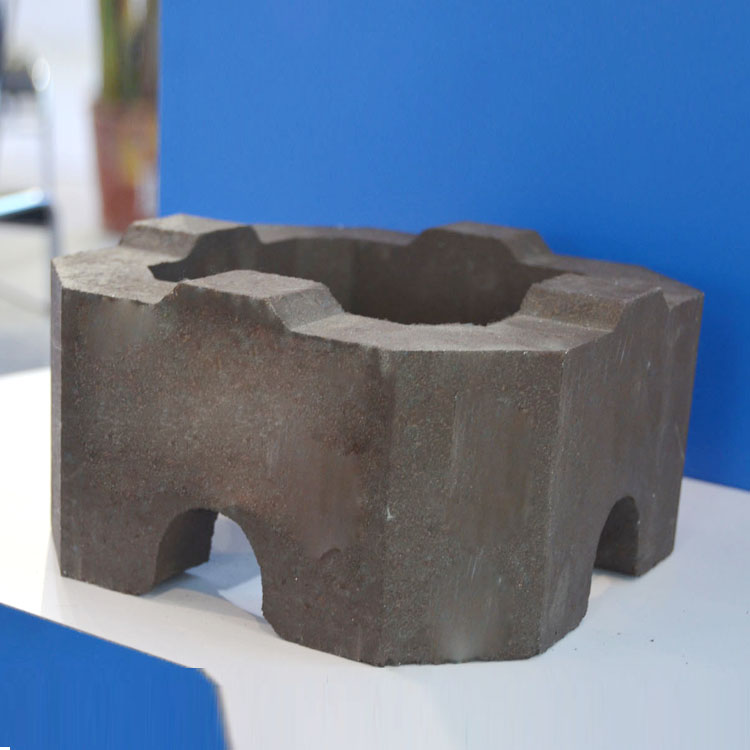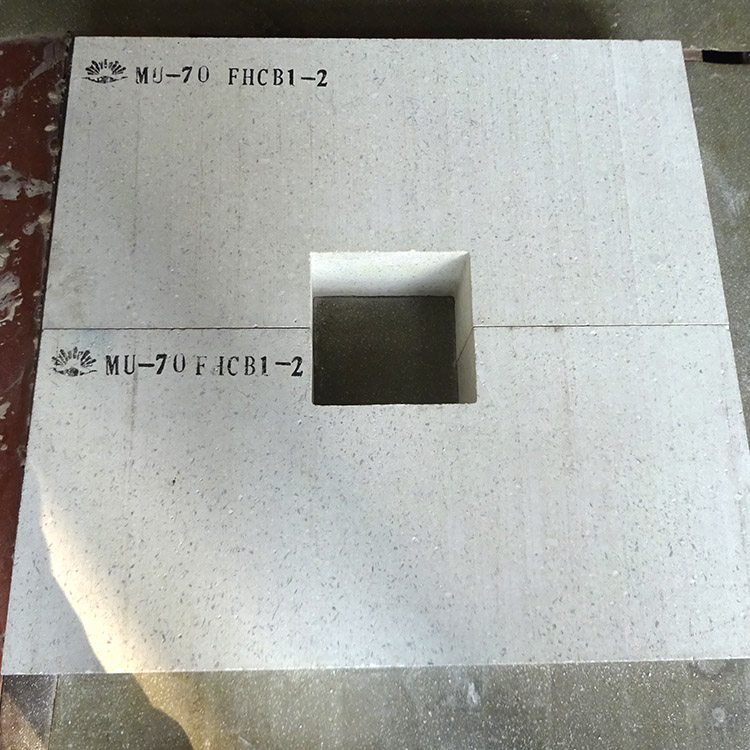
In high - temperature industrial environments such as steel smelting, glass manufacturing, and cement production, the demand for high - performance refractory materials is extremely high. These industries often operate at temperatures well above 1000°C, and the refractory materials used must withstand extreme heat, chemical corrosion, and mechanical stress. This is where fused magnesia bricks come into play as an ideal solution to these industrial high - temperature challenges.
Fused magnesia bricks are primarily made from fused magnesium. The production process starts with carefully selecting high - quality fused magnesium raw materials. After a reasonable particle size ratio, these materials are then subjected to high - pressure molding and high - temperature sintering. This meticulous manufacturing process ensures the high quality and performance of the bricks. The high - temperature sintering process, for example, can be carried out at temperatures up to 1800°C, which significantly enhances the density and strength of the bricks.

Compared with other refractory materials, fused magnesia bricks have remarkable performance advantages. Firstly, they have excellent resistance to alkaline slag. In steel - making processes where alkaline slags are common, traditional refractory materials may experience significant corrosion, while fused magnesia bricks can maintain their integrity for a long time. Tests have shown that in an alkaline slag environment at 1500°C, the corrosion rate of fused magnesia bricks is only about 10% - 15% of that of ordinary refractory bricks.
Secondly, they have a high refractoriness. The refractoriness of fused magnesia bricks can reach over 2000°C, which means they can maintain their physical and chemical properties even in extremely high - temperature environments. Thirdly, their thermal stability is also very good. They can withstand rapid temperature changes without cracking or spalling. For example, they can endure temperature fluctuations from room temperature to 1200°C and back multiple times without significant damage.
Fused magnesia bricks are widely used in various industrial fields. In the steel - making industry, they are used in the lining of converters, electric arc furnaces, and ladles. In the glass - manufacturing industry, they are used in glass melting furnaces to resist the high - temperature corrosion of glass melt and flue gas. In the cement industry, they are used in rotary kilns to ensure the stable operation of the production process.

The strong corrosion resistance of fused magnesia bricks brings significant economic benefits to enterprises. Since they have a longer service life, the frequency of replacing refractory materials is reduced, which in turn reduces maintenance costs and downtime. For a medium - sized steel plant, using fused magnesia bricks can save about 20% - 30% of the refractory material procurement and maintenance costs annually.
In summary, fused magnesia bricks are the perfect solution to industrial high - temperature problems. Their excellent performance, wide range of applications, and economic benefits make them an ideal choice for improving production efficiency and reducing costs in high - temperature industries. If you are looking for a reliable refractory material to solve your high - temperature challenges, we strongly recommend that you give priority to fused magnesia bricks.
Contact us now to learn more about our fused magnesia bricks and how they can benefit your business. Our professional team is ready to provide you with detailed product information and customized solutions.

